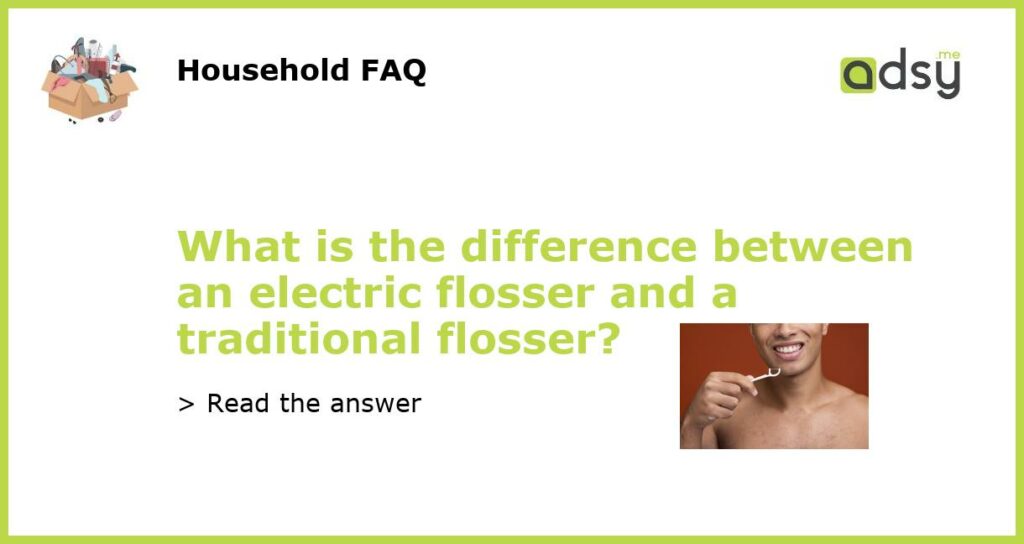Electric Flosser Vs Traditional Flosser: Which One is Better?
If you’re looking for effective ways to maintain good oral hygiene, flossing is a must-do. Apart from brushing your teeth, flossing helps to remove plaque, food debris, and bacteria from hard-to-reach areas in your mouth. For many years, traditional flossing was the only way to achieve this, but now there is a new player in town – the electric flosser. In this article, we’ll discuss the difference between the two flossing methods to help you decide which one will work best for you.
What is a Traditional Flosser?
A traditional flosser is a thin, nylon string that is used to remove plaque and food particles from between teeth. The string is wrapped around the fingers, and then worked between the teeth using a back-and-forth motion. This method is effective but requires a manual effort, and can be time-consuming if you have several teeth to floss.
What is an Electric Flosser?
An electric flosser, also known as a water flosser or oral irrigator, is a device that uses a high-pressure water stream to clean between teeth. The water stream is typically delivered through a handheld device with a small nozzle that directs the water to the gaps between the teeth and along the gumline. Some models come with additional attachments, such as a brush head or rubber tip, to help remove plaque and improve gum health.
Pros and Cons of Traditional Flossing
- Pros: Traditional flossing is affordable, easy to use, and portable. It allows you to target specific areas in your mouth and control the pressure and force applied between your teeth.
- Cons: This method requires dexterity, which can make it difficult for some people, especially those with arthritis or other mobility issues. It can also be time-consuming, and you may need to use multiple strands of floss to clean your entire mouth.
Pros and Cons of Electric Flossing
- Pros: Electric flossers are gentler on gums, making them ideal for people with sensitive teeth and gums. They are also more effective for people with braces, dental implants, or other types of dental work that make traditional flossing difficult. The high-pressure water stream can help flush out bacteria from deep pockets around the gumline, reducing the risk of gum disease.
- Cons: Electric flossers can be expensive and require a power source, which may limit portability. Some people find the sensation of the water stream uncomfortable or too powerful. They can also be noisy, which may be an issue for some people.
Which One Should You Choose?
The choice between an electric flosser and traditional flosser depends on your individual needs and preferences. If you have braces, dental implants, or other dental work, an electric flosser may be the best option. If you have sensitive teeth and gums, an electric flosser may also be better suited to your needs. However, if you prefer a portable, affordable, and convenient option, a traditional flosser is still a tried-and-true method for maintaining good oral hygiene. Ultimately, the most important thing is to floss regularly, regardless of the method you choose.






